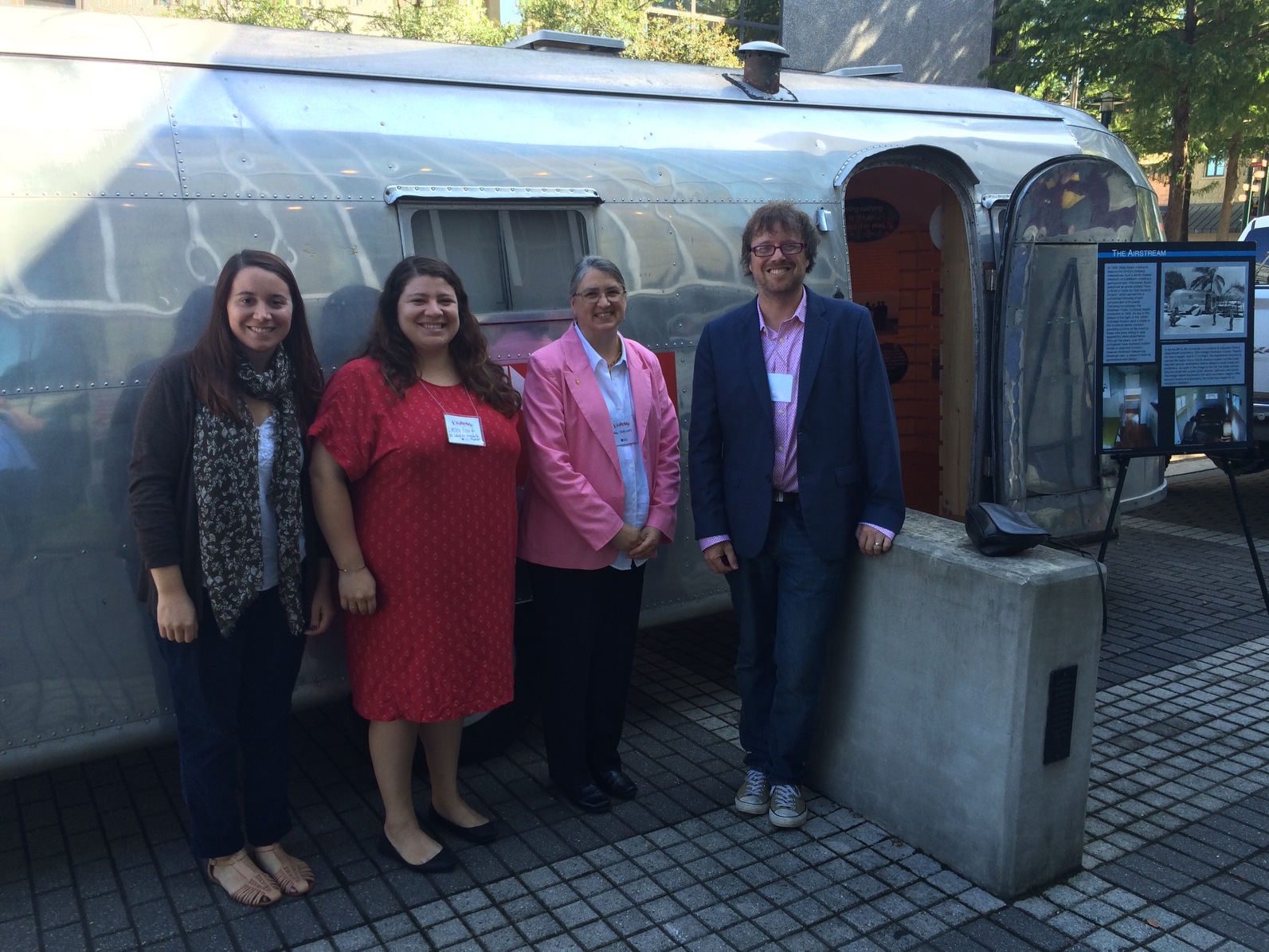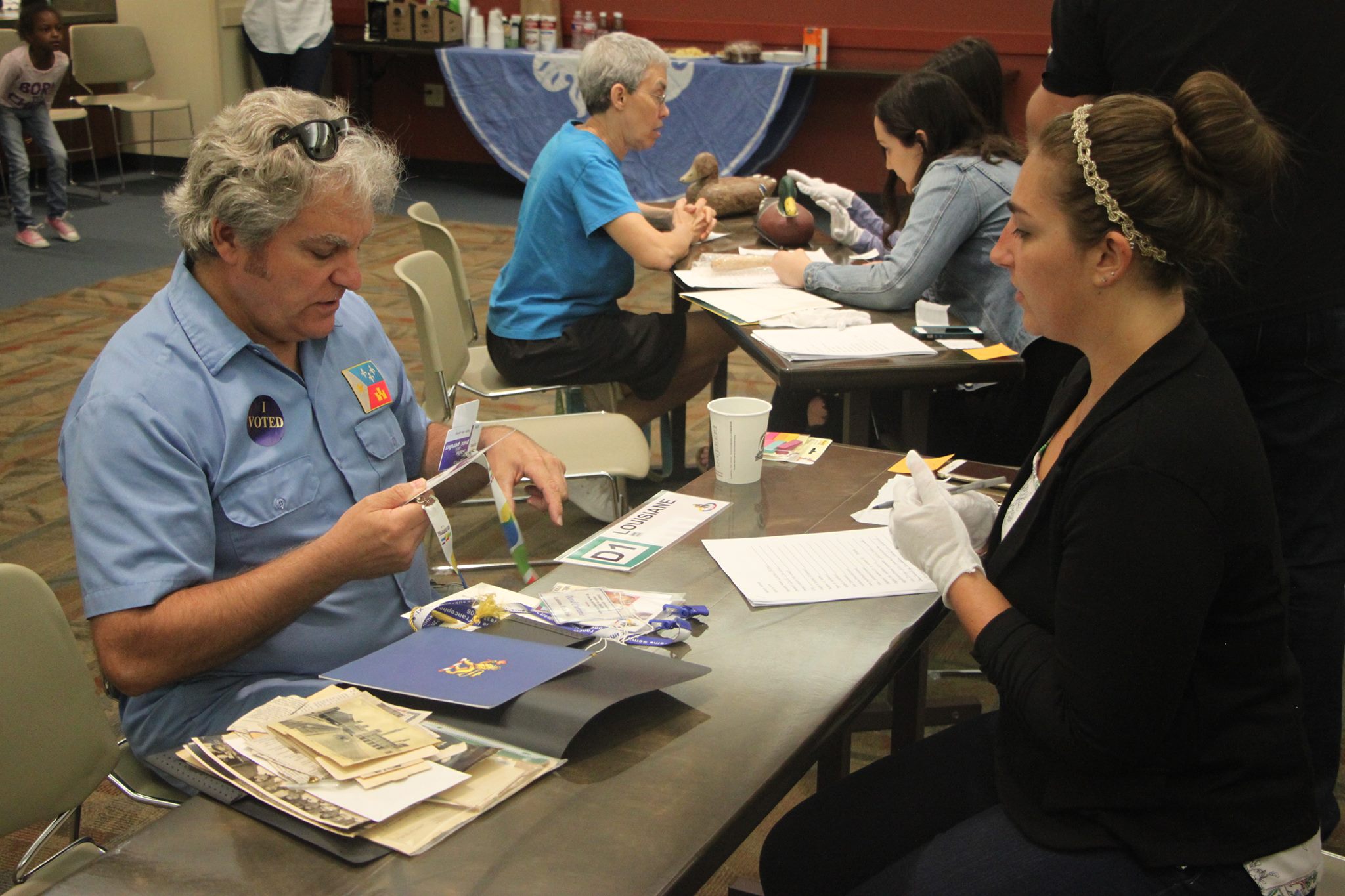Public History: Who we are & what we do
Who We Are
Public History Faculty and Instructors
- Dr. Ian Beamish, associate professor of history (Ph.D., The Johns Hopkins University). Dr. Beamish is our department’s Director of Public History. Beyond public history, he researches and teaches about nineteenth-century U.S. history and the history of slavery.
- Dr. Robert Carriker, professor of history (Ph.D. Arizona State University). Dr. Carriker is the founder of the Public History program. He regularly offers public history courses on oral history and local history. His research centers on twentieth-century U.S. history and the history of the American West.
- Dr. Deborah J. Clifton, adjunct professor (Ph.D., University of Louisiana at Lafayette). Dr. Clifton is Curator of Collections at the University of Louisiana at Lafayette Science Museum and offers courses on museum management and archival sciences. Her research areas also include French-Speaking North America and Vernacular Healing Systems.
- Dr. Michael S. Martin, professor of history (Ph.D., University of Arkansas). Dr. Martin is department head for History, Geography, and Philosophy. He has offered public history courses on local history and corporate/institution history. His other research and teaching interests include the histories of Louisiana and the U.S. South.
- Dr. Marissa Petrou, assistant professor of history (Ph.D., UCLA). Dr. Petrou is director of the Guilbeau Center for Public History. She regularly offers HIST 510: Introduction to Public History as well as courses on museum studies. She also researches and teaches on German history and medical history.
Public History Staff
- Sarah I. Rodriguez, MA (University of West Georgia). Rodriguez is associate director of Public History and the Guilbeau Center for Public History.
Affiliated Public History Faculty
- Dr. Liz Skilton, associate professor of history and associate director of research at the Blanco Public Policy Center (Ph.D., Tulane University)
- Dr. Kaitlin Simpson, assistant professor of history (Ph.D., University of Tennessee)
- Dr. Theodore R. Foster, III, assistant professor of history (Ph.D., Northwestern University)
What We Do
The Guilbeau Center for Public History
The Guilbeau Center for Public History, housed in the Department of History, Geography & Philosophy at UL, is an unparalleled research center dedicated to the study and practice of Public History. As a state and regional leader for public history, its projects receive national attention for their originality and contribution to the field. One of four research centers at the University’s College of Liberal Arts, the Guilbeau Center offers new digital humanities tools for data analysis, archiving, and digital exhibits; video and audio recording equipment; scanners for maps and 3D objects and 3D printing. The Guilbeau Center also consists of a recording studio, conference room, and project space. Its resources are used to produce podcasts and documentary films, collect oral histories, digitize maps, curate digital and analog history exhibits, organize public history colloquia, and provide training workshops in new software and technical equipment useful to public historians.
Community Partnership and Collaboration
Working beyond the realm of traditional academic history is at the core of public history. Our program has a long history of working closely with local, state, and even national partners, and our students gain meaningful experience in establishing and cultivating such collaborative activites.
Museum on the Move
In the Museum on the Move project, history graduate students outfit a vintage Airstream trailer with an interpretive exhibit that hits the road to take history directly out of the classroom and to the public.  Follow us on Facebook.
Follow us on Facebook.
History Harvest
The history students from the University of Louisiana at Lafayette organized History Harvests, unique community projects on French speaking heritage in Louisiana.  These History Harvests are used to create an online collection of objects, documents, photographs, letters and other items about the history of French-speaking people in 20th century Louisiana.
These History Harvests are used to create an online collection of objects, documents, photographs, letters and other items about the history of French-speaking people in 20th century Louisiana.
Internships
The History Department offers generous funding for internships, which are a vital component to any public history program and provides hands-on training in a real-world setting.
Capstone
The Capstone consists of a portfolio comprising: a Resumé for public history jobs; a Description of Public History Projects and Skills developed; a Statement of Practice (including how you plan to work with community partners); and the completion and defense of a collaborative Public History Project with a community partner (including a prospectus, methodological write-up, and project itself). Our most recent Capstone projects are Our Lady of Wisdom Catholic Student Center and the Desegregation of SLI during the 1950s (podcast and oral history collection), Kicking the Dust: Cajun Dancespaces (documentary film), and Ya MeeMaw’s Magnalite Collection: A Cajun Recipe and Oral History Archive (website and oral history collection).
